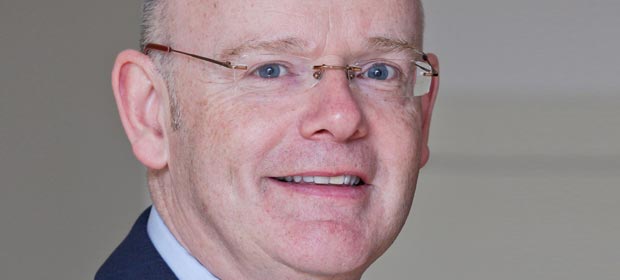In HIQA we recognise that the regulation of residential and residential respite services for children and adults with disabilities provided by the HSE, private organisations or voluntary bodies will present challenges for providers and managers, writes Phelim Quinn.

The Health Information and Quality Authority has recently begun the regulation of residential and residential respite services for children and adults with disabilities provided by the HSE, private organisations or voluntary bodies. The Authority is committed to working with providers and managers across the sector to ensure a smooth transition to the new regulatory framework and at the same time promote improvement in the quality and safety of services.
As the State’s health and social care regulator we will use the sanctions available to us if we believe that there is significant risk to health, safety or wellbeing of residents.
The regulation of these services is a significant step by Government in its commitment to promoting the quality, safety and rights for children and adults with disabilities living in residential services in Ireland. The programme will also provide assurance for families and carers in the future.
This is the first time that these services will be subject to independent scrutiny. Residential services must register with the Authority and they will be inspected to ensure that all services are of a consistently high quality, regardless of which provider is running them.
In HIQA we recognise that this new process will present challenges for providers and managers of residential services but we aim to work with them, and with advocacy groups, to ensure that everyone is ready for regulation. During our recent series of road shows we have communicated that our key aim in the registration period will be to promote improvement where challenges are identified within services. However, as the State’s health and social care regulator we will use the sanctions available to us if we believe that there is significant risk to health, safety or wellbeing of residents.
HIQA is now legally responsible for registering and inspecting residential services for children and adults with disabilities, this includes respite services.
HIQA is now legally responsible for registering and inspecting residential services for children and adults with disabilities, this includes respite services. We have actively engaged with providers during the recent information sessions, and through ongoing meetings we are having with the service provider umbrella groups. All of our road shows have been aimed at helping managers and their teams prepare for an inspection, dealing with such issues as responding to inspection reports, the requirement for action plans and the submission of the required statutory notifications.
Regulatory environment
Residential services for people with disabilities are provided in approximately 1,700 locations around the country. From the information provided to HIQA we believe that this will equate to an estimated 1,300 designated centres provided by approximately 88 providers.
HIQA will inspect against the regulations (S.I. No. 366 and S.I. No. 367) published in November, and monitor services against the framework of the National Standards for Residential Services for Children and Adults with Disabilities, published in May 2013. The Standards focus on the outcomes to be achieved for the adults and children receiving services.
Inspections
Inspections will be both announced and unannounced and they will take place on a phased basis. Where risk is identified within services either through our inspections or through the receipt of information from service providers or other interested parties we may need to increase the frequency and intensity of our inspections.
During an inspection visit, inspectors will talk to a variety of people. Our main focus will be on the experience of the person living in the residential service, this means assessing what it is like to live there and if each person is receiving care tailored to their individualised needs. Inspectors will also observe daily routines, quality of accommodation and nutrition, meals and meal times as well as other aspects of daily life.
The inspection report will give an overview of what it is like to live in the centre, will include factual information about the residential services, and will highlight where standards of care are good as well as where improvements are required. Any actions we feel the provider needs to take will be clearly indicated in the report. Depending on the risk posed our inspectors will determine the requirement and frequency of any follow up to the inspection to ensure such measures are undertaken.
New powers
Whilst we anticipate many good quality services providing care using innovative approaches, it is important to stress also that if HIQA’s inspectors come across a situation which poses an urgent risk to residents, and where the provider is unwilling or unable to correct these risks, steps can be taken to address the situation. HIQA has the legal authority to take a number of actions if a residential service is unsafe or if the new regulations are not being met or fully met.
Further information
One of the first steps is establishing what services are covered by the new regulations and those that are not. To assist with this we have published guidance on what constitutes a designated centre for people with disabilities on our website, and we will continue with the two-way communication that has been established between managers and providers of services and the Authority.
More information on the registration and inspection process is available from our website, www.hiqa.ie. Alternatively, you can email us at disability@hiqa.ie or phone 01 814 7400. You can also write to: Disability Services, Health Information and Quality Authority, Georges Court, Georges Lane, Smithfield, Dublin 7. By working together, we can minimise the challenges ahead and drive improvements that result in safer better care for the people using these services.
Phelim Quinn, HIQA Director of Regulation

